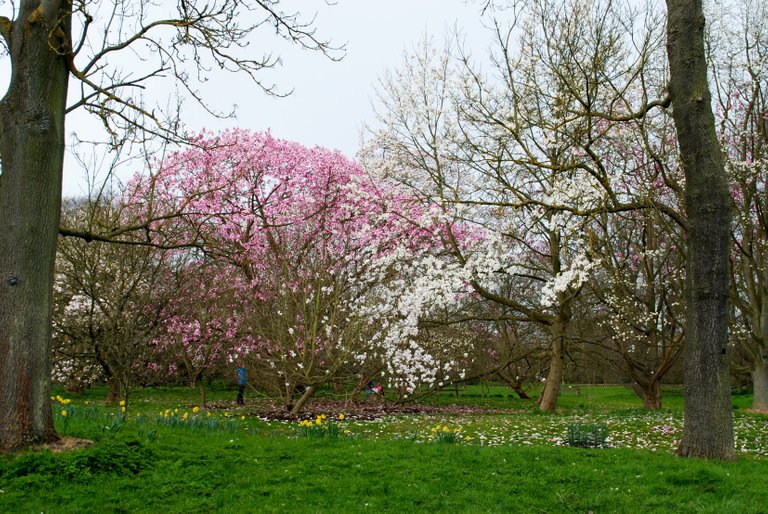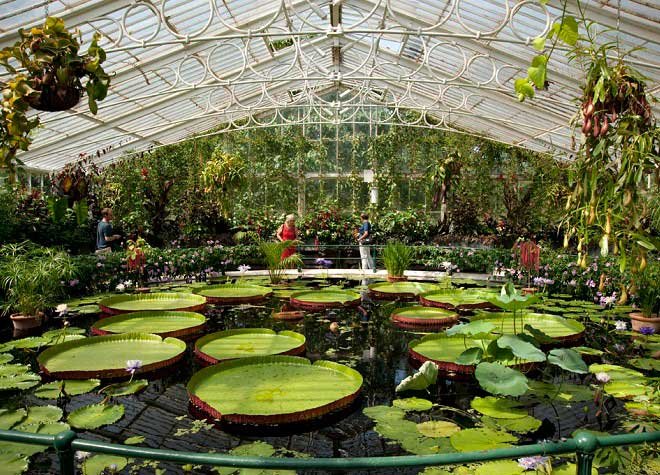Botanic Gardens, Kew
London Royal Botanic Gardens are easily accessed by train or underground from central London or by boat in season, on a route used by Henry VIII when he sailed to Hampton Court. London Kew Gardens cover over 120 hectares. They received World Heritage status in 2003 for the largest plant collection on earth and a range of historical buildings, 39 of them listed. In 2009 Kew Gardens celebrate their 250th anniversary with special events but the following top attractions can be enjoyed any time.
Kew Gardens Blooms and Trees

Beautifully reflected in a pond, the Victorian Palm House displays marine life in the basement and rainforest plants and palms above, including endangered species. The tallest specimens grow right up into the central dome. Near the Palm House is a slender Italian-style campanile, once built to disguise the boiler’s chimney stack.
Designed by the same architect, Decimus Burton, but twice as big, the Temperate House is the world’s largest surviving Victorian glass structure. Among its many exhibits are a stunning Chilean wine palm, the world’s largest indoor plant, and Kew’s rarest specimen, a cycad from the Natal National Park. The upstairs gallery offers a spectacular bird’s eye view.
Kew Special Gardens

For many visitors, much of the charm lies in small themed gardens within the grounds. The Duke’s Garden is known for its floral displays and lavender collection, the Secluded Garden is designed to please all the senses, others are devoted to rock plants, lilac, magnolia, azalea or bamboo with a traditional Minka House to complement the Japanese theme.
Great favourites are the Rhododendron Dell with 700 specimens and the Rose Garden, at its most glorious from June to August.
Historic buildings in London Kew Gardens
Kew’s impressive buildings include the elegant Orangery and Nash Conservatory in classical style and follies reflecting the 18th-19th centuries taste for anything exotic. There are temples and mock ruins, an ice house and a ten-storey high pagoda.
Once a royal residence, it was chosen by Queen Elizabeth II for private celebrations for her 80th birthday. Several rooms display artefacts which give an insight into Georgian life. In the far corner of the estate, the pretty thatched cottage of Queen Charlotte is tucked on the edge of a bluebell wood and conservation area.
Modern structures
The Princess of Wales Conservatory is an award-winning building designed to make efficient use of energy. It blends beautifully into its surroundings and provides ten computer-controlled environments, from mangrove to desert. A seeds for the future time capsule was buried on the site by Sir David Attenborough. The Davies Alpine House claims its own prestigious design award. It is shaped like a mountain peak and constantly renews its displays according to flowering time.
Also worth exploring is the Evolution House revealing how plants evolved over million of years. Discover a fern whose fronds can reach 30 metres.
wow
Thanks :)